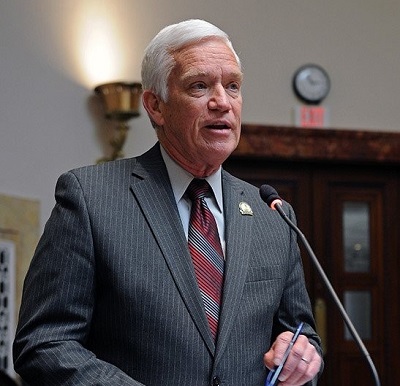
A bill to protect healthcare providers from retaliation for refusing to perform a medical procedure that violates their conscience was approved by a Senate committee on Thursday.
Senate Bill 83, sponsored by GOP Sen. Stephen Meredith, of Leitchfield, would prohibit discrimination against medical care providers who decline to perform procedures that violate their conscience, grant providers the right not to participate in or pay for services that violate their conscience, exempt providers from liability for exercising these rights, and establish a civil cause of action for persons injured by violations of these provisions, among other things.
According to the language of the measure, the conscience provision means, “the religious, moral, ethical, or philosophical beliefs or principles held by any medical practitioner, healthcare institution, or healthcare payer. Conscience with respect to institutional entities or corporate bodies, as opposed to individual persons, is determined by reference to that entity or body’s governing documents, including but not limited to any published religious, moral, ethical, or philosophical guidelines or directives, mission statements, articles of incorporation, bylaws, policies, or regulations.”
In addition, it states, “A medical practitioner, healthcare institution, or healthcare payer shall not be liable civilly, criminally, or administratively for his, her, or its decision to decline to participate in or pay for a healthcare service on the basis of conscience, unless the decision of the healthcare provider violates the standard of care required of that healthcare provider.”
The bill also provides “a religious medical practitioner, healthcare institution, or healthcare payer that holds itself out to the public as religious, states in its governing documents that it has a religious purpose or mission and has internal operating policies or procedures that implement its religious beliefs, shall have the right to make employment, staffing, contracting, and admitting privilege decisions consistent with its religious beliefs.”
The bill passed the Senate Judiciary Committee and now heads to the Senate floor.
By Tom Latek, Kentucky Today








